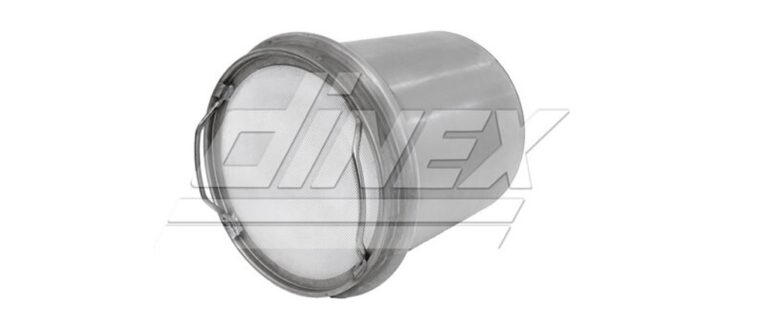
Vehicles and machinery outfitted with diesel engines are also equipped with a special device known as a DPF, or diesel particulate filter, that helps remove particulate matter like ash and soot from the vehicle exhaust before venting it.

These devices, however, do not represent only a matter of compliance with legal regulations, but also support engine performance and fuel economy. Here are some things you should know before you look for a DPF filter replacement.
What Does a DPF Do?
While there are a variety of different types of diesel particulate filters, they all in some form or other capture diesel soot and ash and then actively or passively regenerate it. Some filters approach an efficacy rate of close to 100%.
The implementation of a DPF, as well as the practive of maintaining a DPF, have regulatory and environmental impacts as well as an effect on fuel economy.
How Often Does a DPF Filter Need to Be Replaced?
All diesel particulate filters will eventually need to be replaced, but routinely cleaning the filter will prolong their lifespans and efficiency.
In general, a commercial truck’s DPF should be cleaned about once every 75,000 miles or once per year, whichever is the shorter period of time. For vehicles that operate in city traffic or under particularly heavy loads, the cleaning interval should be much more frequent (defer to manufacturer recommendations).
It can be difficult to say how often you will need to replace the DPF entirely because lifespan will vary according to load and operating conditions. However, once a DPF can become entirely hardened with ash and soot, it will need to be replaced.
How Can You Tell If You Need to Replace Your DPF Filter?
There are numerous ways in which a DPF will tell you it either needs to be cleaned or replaced. Some of the warning signs include:
● Thick, excessive exhaust smoke.
● Poor fuel economy, out of line with historical performance.
● Difficulty starting the engine or the engine runs rough.
● The DPF warning light on your dash comes on.
The latter is a nearly sure sign that your DPF needs to be replaced or at least cleaned.
Why the DPF Filter Is Important Regularly cleaning your DPF, or replacing it as needed, will keep you in compliance with legal regulations, specifically EPA regulations, though laws may be stricter at the state level.
The DPF does not only help control diesel fuel particulate emissions. It is also vital to engine performance.
The DPF system actually has a strong hand in fuel economy, recycling the carbon in soot through two types of regeneration processes that capture additional energy.
One is passive regeneration, in which the system passes soot and ash over a diesel oxidation catalyst (DOC) and then through the particulate filter. Heat from the engine catalyzes a reaction between the carbon in the soot and the oxygen in the atmosphere, harnessing additional energy.
Passive regeneration occurs in certain DPF systems when the engine is operated under load and thereby produces sufficient heat energy for regeneration.
The other system is active regeneration, in which the system actively injects fuel into the exhaust stream over the oxidation catalyst, producing heat that is then actively used to regenerate some of the carbon in soot.
This also produces extra energy but can occur even when the engine is not producing enough heat for passive regeneration.
Both systems can improve the fuel economy of a diesel engine and make the diesel exhaust system more efficient at removing particulate contaminants.
DPF Filter Replacements Online at Filter Service and Supply
Cleaning diesel particulate filters will only go so far. When you need a DPF filter replacement, Filter Service and Supply (FilterServiceandSupply.com) has you covered. They carry DPF filter replacements for Cummins, Isuzu, Caterpillar, Mercedes-Benz, Detroit Diesel and Navistar trucks and equipment, among others.
For more information, visit their website or get in touch with them at 780-455-0263.
For More Information about Diesel Exhaust Filter and Cummins Isx Dpf Filter Please Visit : Filter Service and Supply